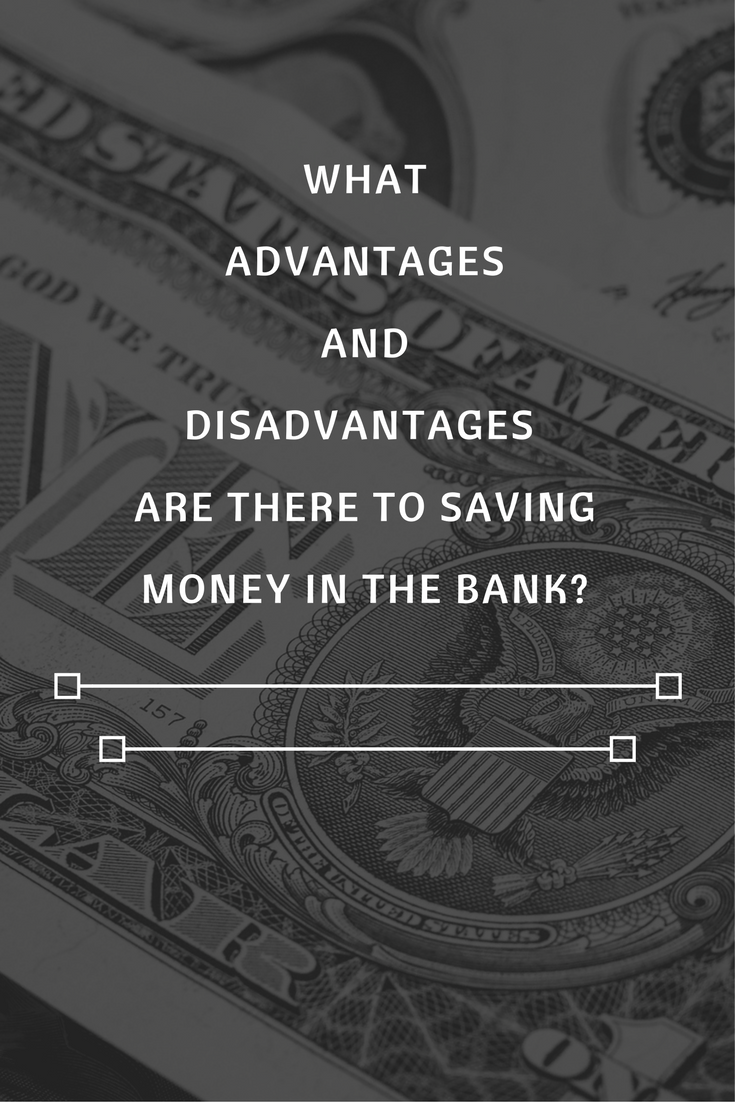
While saving money is indisputably a good decision, there are different routes and methods. Many people save their money in the best bank rather than invest it in the stock market. If you are having this debate, there are many things to consider. Here are a few advantages and disadvantages of saving money within a banking system.
Advantages:
Liquidity
Savings accounts are one of the most liquid investments. Your money is readily available. If this is important to you, saving money in a bank would be a better option than investing in the stock market.
Convenience
Storing your money in a bank is by far the easiest way to save. For one thing, it is user-friendly plus the advantages of online banking. You can set up automatic transfers from your checking to a savings account, it is effortless to instantly withdraw money from your savings, and it’s easy to track where your money is at.
Another benefit of linking the two is you protect yourself from overdraft fees. If you overdraw on your checking account, an automatic transfer from savings to checking will take place to keep your checking in positive territory.
Safety of money
A bank keeps your money untouched. In the stock market, there is always the risk of stocks doing poorly and you losing money rather than gaining. Your profits may be low while saving through a bank, but you are not taking the risks of losing large sums of money through your savings account.
Short Term Savings
Saving up for trips, down payments or expensive items that you foresee buying in the immediate future can easily be done. You can save up quickly in a savings account through your bank, and then immediately withdraw the cash when the time comes. For short term savings, this is the way to go.
Emergency funds/cushion
If you save your money in a bank, you will have immediate access if there is ever an emergency. If your car breaks down, don’t sweat it. Just pull some of your savings right away. This also is handy if you need a cushion within your budget during a tough month. There is less to stress over when you know that you have a back-up plan that’s easy to access.
Insurance
One huge advantage of saving your money at the bank or a credit union is your savings are federally insured by the FDIC or the NCUA. If there is a run on the banks or your credit union closes for some unforeseen reason, your cash is insured up to $250,000.
Disadvantages:
Low returns
Savings accounts typically earn less over a period of time than the cost of inflation. These low returns make saving at a bank a poor financial decision for the future. It may be a better choice to save money long term by investing it in mild and safe mutual funds.
Easy to Spend
Due to the convenience and ease of savings accounts, it is very tempting to spend the money that you are saving. Having your personal savings at your fingertips may cause you to spend more than if access was a little less readily available.
Rules
Banks limit the number of withdrawals you can make from your savings account each month. It’s called Regulation D and limits you to 6 withdrawals per month. Also, there may be fees for withdrawals. Typically, you cannot get checks connected to your savings. Know the rules for your particular bank.
Insurance
As I mentioned before, federal insurance at your banking institution is a wonderful thing, but it does have it’s limitations. Now, I would argue that saving in excess of $250,000 is unwise, but if you can afford to park a significant amount at the bank, just make sure it’s less than $250,000.
Related Reading:
Quick and Easy Ways to Save Money
5 Useful Life Lessons We Can Impart to Our Future Kids About Saving Money
My name is Jacob Sensiba and I am a Financial Advisor. My areas of expertise include, but are not limited to, retirement planning, budgets, and wealth management. Please feel free to contact me at: jacob@crgfinancialservices.com
Fantastic advantages & disadvantages you share here about saving money.. Thanks for sharing with us . It will help me in future!!!!!!!!!